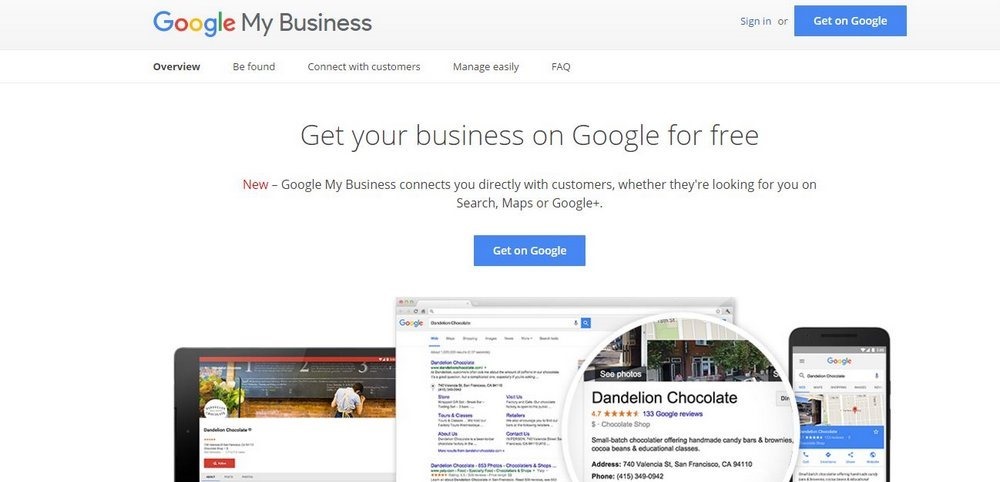5 Effective Ways for Multi-Location Businesses to Get Targeted Leads

“The larger the brand, the better the rankings’ or I should rather put it like this, “the greater the number of physical locations of a business, the better are the local search engine rankings” – this is one common myth among marketers.
Every geographical market serves to a specific demographics, this makes it difficult to come out with a one-size-fits-all plan marketing campaign, especially if you operate from a large number of locations.
When you operate from a number of locations it is important to tailor your local SEO campaigns respectively. For businesses with multiple locations and franchise brands, drafting, implementing and evaluating separate local marketing strategies for each of these locations is the hardest part.
You need to make sure that the local SEO strategies for each location of your business consider all the potential local ranking factors.
Having to cater to both local and national audiences, it is quite difficult to come down on a particular strategy or plan. Also, ignoring any location is not the right thing to do. It can lower the sales/leads for your business.
So, what can be done? I’ve created this post to help you maximize your local businesses visibility across all the markets you serve.
Let’s get started.
Contents [hide]
Single Domain
Matt Cutts has already said it loud and clear long back – “Give a URL to each store”.
Simply put, in order to rank well, make sure each of your location has a separate web page.
Now, managing 50 websites together can be a task – extremely time-consuming, confusing and difficult to manage. Also, these multiple domains will be indexed separately, so your SEO efforts will not be compounded. If you have 50 locations and you want all of them to rank well, you would have to create 50 different versions of your “About-Me” page, 50 others of “Services”, “Contact me” pages and so on. This wouldn’t be practical.
Instead, of having a standalone domain for each of your locations, use a subdomain or subfolder under a single domain. This will help you create a more powerful, stronger and legitimate brand. It will save your time and compound your SEO efforts.
Creating a location-specific directory (www.example.com/cityname/Page-1) or subdomain (city.example.com) and incorporating fresh, unique and location-based content can help you save your time and SEO efforts.
City/State specific pages
One of the keys to ranking well for your targeted locations is creating unique and engaging content optimized individually for each location.
As mentioned above, Matt Cutts focusses more on individualized pages/URLs (which could be grouped according to the cities/states).
Each of these URLs should be added to the sitemap for Google to index.
Having geo-specific content opens up opportunities to make most of the on page elements:
- Title tags
- Heading tags
- Meta Description tags
- Links – Inbound and Outbound
Make sure the content for each location page is unique. Simply swapping the location name (City/state) won’t work.
Segment the various details: reviews, hours of operations, payment options, directions, testimonials on the basis of each location. This does not only help in eliminating the chances of duplicate content but also in providing a more focused user experience.
Always remember, the more unique the content, the better it is.
Google+ local
Google+ local is a powerful tool to expand the online visibility of your local business.

It allows you to create a unique listing with a phone number. This implies that you are required to have a unique phone number (and not toll free number) for each of your locations. You have the opportunity to establish the online presence of each location as an individual entity. Every post on a page gets a separate URL which can potentially get its own rank and search traffic.
Your listing details need to comply with Google’s local business information guidelines. Because these listings are majorly integrated with Google local search results, expect to get higher visibility in front of your local audience. This also helps you get a higher clickthrough rate.
While Google+ Local is a must for every local business, using it in combination with other important directories like Yelp and Foursquare can improve your local rankings further.
Get listed on all the important directories
Citations empower local SEO. In order to get your business (all the locations) ranked, it is important that you are cited across the web consistently and accurately. A large portion of people naturally turn towards directories to find a local business.
These directories not only perform better in organic results, but also drives a great deal of traffic. So even if your business is facing any difficulty in ranking for a specific keyword, it can easily make it’s way through these directories to their potential customers.
To begin with, target the national or generic directories (Google Places, Bing Places, Yahoo local, Yelp. Foursquare etc), then get listed in industry specific directories (Tripadvisor, if you are a hotel etc) and then locally relevant directories (Chamber of Commerce etc)
Instead of manually wasting your time and efforts in finding web properties where you should get listed, use automated tools which can do this task for you in almost no time.
Local RankWatch Profile Analysis feature after taking the current trend into consideration, handpicks all the websites or directories where you should have your profile on.
SEO Audit
An SEO audit is necessary to keep things on track. It gives you the status of your website and what you can do to improve it.
To begin, make a list of some geo-targeted keywords for which you intend to rank and run a quick query for each of them. See which position you hold in the search results for each keyword.
Along with knowing the organic rankings for each location, you should also conduct an analysis of all the on-page elements.
Here are a few important points you should check for your homepage while performing an SEO audit:
- Do not have a redirecting homepage
- The Business name, phone number, exact city and street address are clearly visible on your homepage.
- Have a business logo that reflects the value of your business and optimize it with a correct Alt text.
- Make sure your website is mobile-friendly – responsive web design is the best choice
- The navigation links on the homepage are crawlable and redirects to the right web page.
A well-performed SEO audit ensures all webpages are structured and in a good shape to rank on google local search results.
Schema/Structured data
Structured data markup your web content with special tags, through which search engines extract additional information about a business and display them in search results.
Traditionally, organic results show page title, URL and a small description (which are taken from the website’s meta data). With Schema.org, you can expand this information to include other details including hours of operations, reviews, ratings, pricings, payments and so on.
This undoubtedly increases the Click-through-rate.
Conclusion
The only key to getting all your locations ranked is treating each of these as an individual entity or business. You don’t have to spread or distribute your marketing efforts across them. Instead, try to create customized plans for each market. With this approach, it is even easier to analyze which of your location is giving the best results and which needs to be worked upon.
Over to you now!
How have your experiences been in managing a multi-location business? Which of these strategies worked the best for you? I would love to hear your thoughts on the topic!
Author Bio: Sahil Kakkar is the CEO and Founder of RankWatch – a platform, which helps companies and brands stay ahead with their SEO efforts in the ever growing internet landscape. Sahil likes making creative products that can help in automation of mundane tasks and he can spend endless nights implementing new technologies and ideas. You can connect with him and the Rankwatch team on Facebook or Twitter
[Header Image Source: Shutterstock.com]

[…] it is quite difficult to come down on a particular strategy or plan. You need to make sure that the local SEO strategies for each location of your business consider all the potential local ranking […]